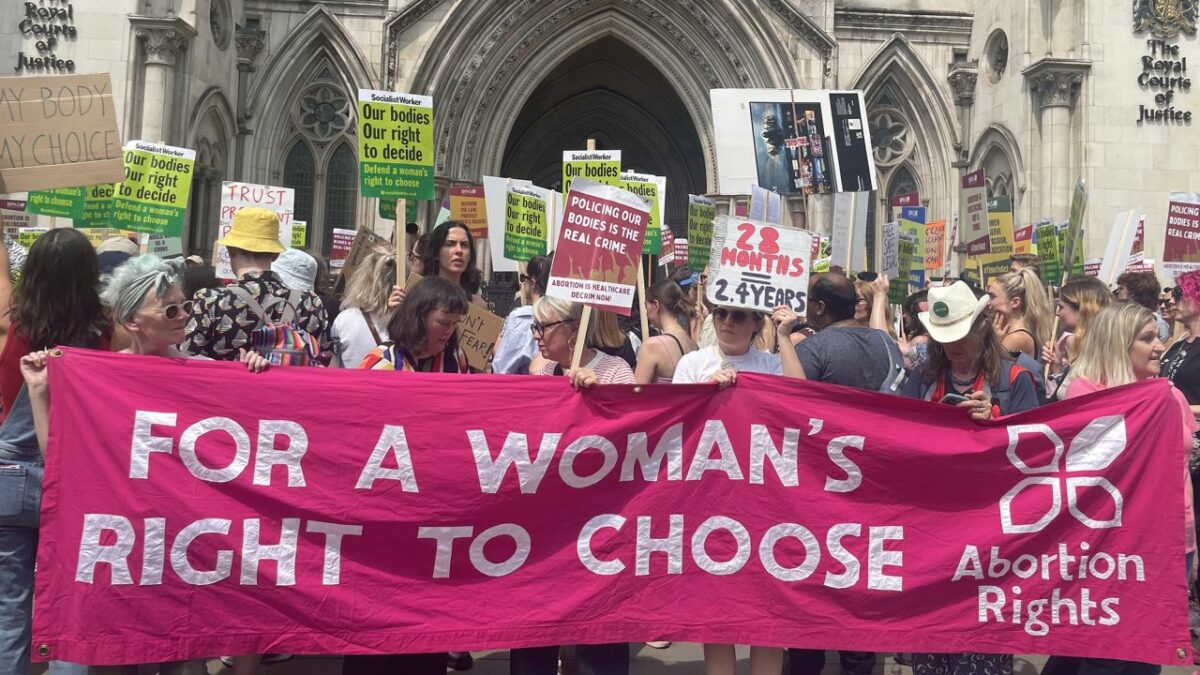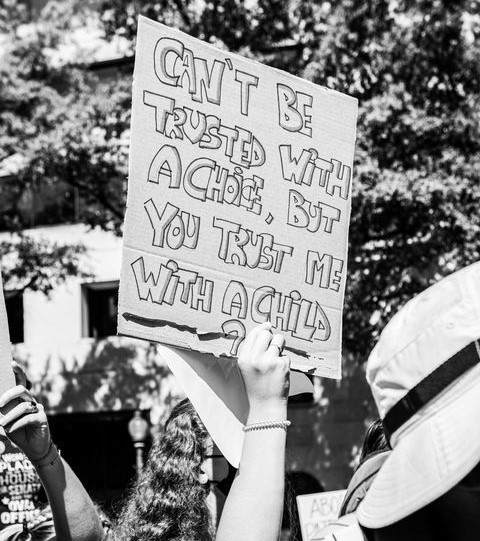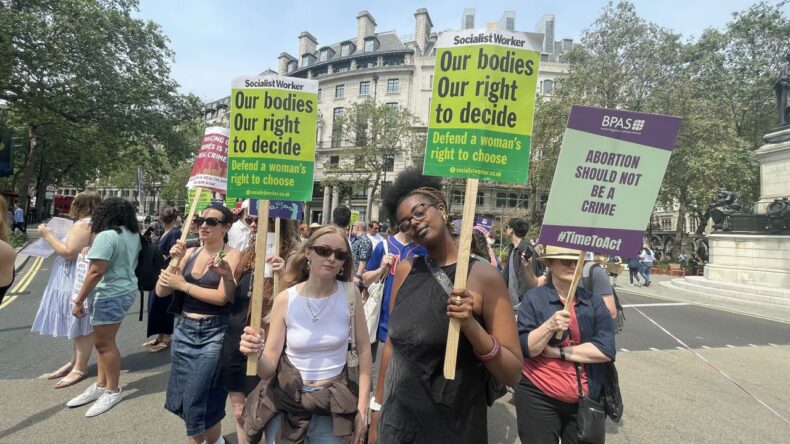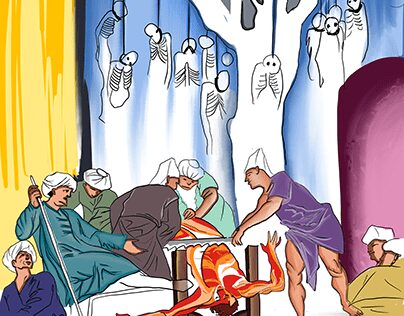It has been a year since the historic overturn of Roe v Wade by the US Supreme Court, which restricted females’ basic rights to their bodies. As the most important stakeholder, women are not even permitted a say in vital decisions. People in the United Kingdom have finally had enough, and hundreds lined the street outside to protest the High Court on Saturday holding picket signs that read “Our bodies, Our right to decide”.
The Protest:
Triggering this uprising was a case where a British woman used medication to terminate a pregnancy after the UK’s legally allowed limit. She was sentenced to 28 months in prison under a law as old as the Victorian era. It was written at a time when women didn’t even have the right to vote. The mother of three was handed down the sentence under the Offences Against the Person Act (OAPA) which dates back to 1861.
This has sparked a movement urging the government to change the reproductive justice laws as people march through the streets of Central London, demanding reforms. Citizens at the protest seem flabbergasted by the government’s continuous effort to keep involving themself in other people’s birthing rights.
Campaigners and bloggers present are of the view that ‘whoever has a womb should have the choice what they do with it’. Pro-choice advocates say that little progress has been made to boost access to reproductive health services not only in the UK but worldwide.

Barrister Charlotte Proudman was fighting the same fight a second time, having been one of the signatories of a letter addressed to the Director of Public Prosecutions for England and Wales which highlighted similar cases and demanded change. Disappointed, little change has been enacted since she speaks of the collective rage people are facing after the recent conviction.
In 2019, lawmakers in the British parliament voted for legislation that ended the criminalization of abortion in Northern Ireland separating it from the rest of the UK. Protesters wish that the same should be extended to the entire nation along with better availability of abortion care. Canada was among the few countries to decriminalize abortion 30 years ago.
The British Pregnancy Advisory Service stressed that even laws in Texas, a state which is popularly known for its anti-abortion politicians aren’t as extreme to send women to prison for life for ending their pregnancies.
Current Law:
The current law allows abortion legally up to the first 24 weeks of pregnancy. After this period, women who have consumed drugs to terminate the child are liable to receive a prison sentence of up to a life term. The 1967 act renders activities lawful which would otherwise be a crime under the OAPA. The law remains silent on many necessary factors like the sex of the fetus or abortion as a result of sexual assault. Moreover, the medical practitioner conducting the procedure has the final say on the matter and not the woman. They are not under any compulsion to take their social, economic, and mental health into account while making their decision.
Hope Still Alive:
Liberalized abortion measures allow patients to avail of the procedure earlier in their pregnancy and the comfort of their environment. If abortion isn’t legal and free at the point of delivery, then people tend to leave it till later.

The protesters remain in hope that change will be brought amid a growing consensus that these laws don’t work. Legislations that let women behind bars who have been vulnerable without support and compassion cannot be allowed to exist. What is sad is we exist in a world where guns are legal, but letting women decide for their bodies isn’t.













